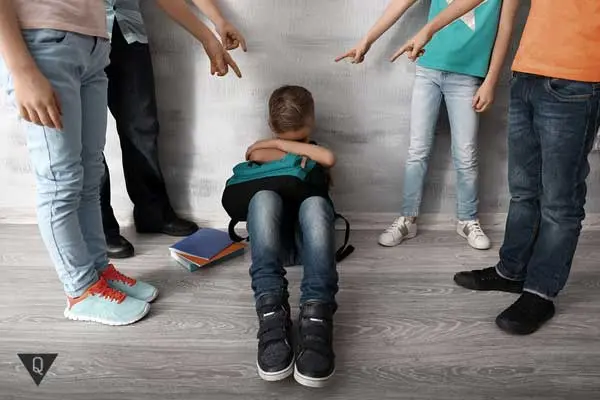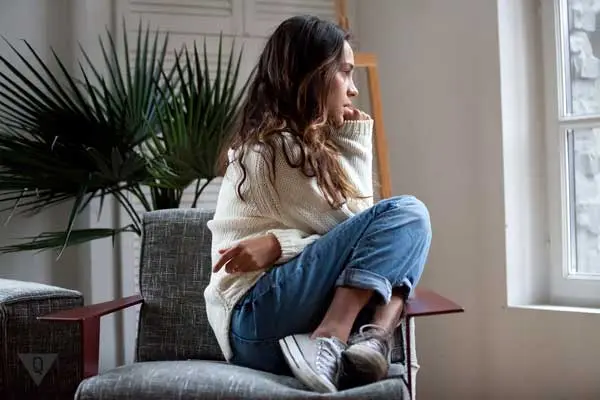Contents
Hello dear blog readers! Victimblaming is such a paradoxical phenomenon in which the victim of violence is blamed, and not the one who committed it.
And today we will take a closer look at why this happens and what methods of struggle can be taken.
What is it?
In simple words, victimblaming is when you hear, or maybe even pronounce such phrases yourself:
- It’s my own fault, I didn’t have to walk so long
- It’s too late to cry, next time you’ll think before you…
- The child was born with severe pathologies only because the parents …
- You just like to suffer
- You definitely want to take advantage of the current situation.
- You deliberately arranged everything so, because you yourself wanted to
They can be continued ad infinitum. The bottom line is that the responsibility for any incident is shifted onto the shoulders of the victim.
Victimblamers can often be found on social networks, or rather in the comments under photos, in groups with a certain theme, and so on.
Individuals who have not received timely support and are in a difficult state react very painfully to unfair accusations against them. They have a so-called retraumatization, that is, a secondary injury.
Those who are not left alone with their misfortune have enough resources to defend their rights. They feel angry and engage in skirmishes with offenders, not allowing them to violate their own boundaries anymore.

Why is this happening?
Justice
Just imagine how much anxiety and fear a person will have if he realizes that anything can happen to him at any moment? That he is not immune from unfair treatment of himself? What can the Universe take and just “punish” despite good deeds and a good heart?
When we blame the victim, well, it’s her own fault, we didn’t have to dress so provocatively, go out so late, communicate with strangers, and so on, it seems to us that this will probably not happen to loved ones. They are doing the right thing, just like us.
There is a mystical-religious idea that the world is arranged according to the principle of justice. That evil will surely be punished, and good will win. As they say, everyone will be rewarded according to their merits. It is easier to live with it, with this idea. After all, then it is more or less clear how one should behave if one wants to avoid an unpleasant situation.
We are sometimes really in illusions, trying not to notice reality, because it frightens and terrifies.
And if the daughter of a friend was raped by an unknown person when she was returning home, then one does not want to believe in such a reality, one wants to justify her. For example, that this girl has always been strange and defiantly behaved. And somehow, in general, she was caught behind garages with a cigarette. It is clear that this will not happen to your own obedient, smart and kind child.
Our brains always need a logical explanation, and situations like this simply don’t have one. In addition, the rapist is a «bad person.» Therefore, he comes up with options that will sound more or less satisfactory.
Suspension
When we blame a person who has suffered from violence, we literally separate, move away from him. After all, rapprochement is acceptance, the ability to simply be. But, having learned about the monstrous event, you don’t want to be around at all, you want to “run away” as soon as possible, move away and have nothing to do with either the victim or the situation itself.
It’s like the desire to wash your hands if they are soiled with something that causes disgust or fear of catching some kind of disease.
But do not immediately blame yourself and others for such a reaction. These are defense mechanisms. They protect our psyche so that it functions without problems and difficulties that can lead to disorders.

self accusation
And you know what’s the worst? Somehow it’s embarrassing to be a victim and not an abuser. That is, in most cases, the one against whom violent acts are committed is ashamed. But the aggressor himself does not experience pangs of conscience and does not observe anything reprehensible in his behavior.
It is this fact that complicates things. Victims sometimes cannot open up even to close people, because they are afraid of condemnation. After what happened, they are looking for answers to the question: “why?”. Most often they do not find that it is quite natural, but despite this, they feel guilty. Because they think that the reason lies in them.
Crisis centers and psychologists in general after a trauma are treated mainly with the following request: “how should I behave so that this happens again?”. It can be modified, but the meaning is the same.
According to statistics, approximately 60% of women victims of violence did not apply to law enforcement agencies. That is, it turns out that 60% of abusers were not punished. And, moreover, they continue in the same spirit, because they feel impunity.
Often there is the so-called Stockholm syndrome — this is when the injured party justifies the actions of his rapist, pities him. Since he thinks that he would be happy, healthy and so on, he would never do this to her. She seems to take his side and the motives that drive him.
How to fight
Unfortunately, victimblaming is often intertwined with gaslighting — that is, one of the types of psychological pressure. In which the abuser assures his victim that she forced him to do it, or that she exaggerates too much, or even invents.
It can be so convincing that a person will really doubt the correctness of his conclusions and feelings. In general, you will learn more about what it is from this article.
Remember that you should never be alone with your pain and other experiences. As embarrassing as it may be, try talking to someone about what happened. In addition, almost everywhere there are crisis centers, assistance departments, where you can not only get support, but also expert advice.
Learn to be more tolerant of other people. Unfortunately, many of us sometimes wonder how it was possible, for example, to get into a car with a stranger and hope that everything will be fine?
Unfortunately, what seems obvious to us is not so to other people. Because we differ in that everyone has their own experience, values, living conditions. Someone was more fortunate, he had caring parents who taught him to take care of his own safety. And someone did not have a mom and dad, or they were not up to their children.

So no matter what happened, try not to judge. None of us is perfect, it’s just that one person has to pay more for his mistakes, while another under the same circumstances manages to «get away with it.»
Crisis centers
I would like to share the contacts of the crisis centers that operate in Russia.
- Violence.no On this site you can get not only advice and qualified support. But even passing a test, for example, in order to understand, it seems to a person that they are being treated unfairly. Or is it really so and it’s time to sound the alarm. The creators of Violence.No wanted to make this problem visible to society, not hidden. Because, if you do not notice something terrible and unpleasant, this does not mean that it does not exist.
- Telephone number for women victims of domestic violence 8 (800) 7000 600. Calls throughout Russia.
- Colon is a help center for men. Mostly women are the affected parties, so there are a lot of sites, organizations, foundations and so on for them. But men are also held hostage to stereotypes and bullied. They have a particularly difficult time dealing with shame. They are considered strong representatives of humanity, therefore they are «obliged» to carry out a difficult mission — to protect the weak and help those in need. Exaggerated, but still. Why is it difficult to admit that it was not possible to show super heroism. This not only hurts self-esteem, but can also lead to depression, suicide.
Completion
Be sure to read the article on victim behavior. Take care of yourself, defend your boundaries and be happy! The material was prepared by a psychologist, Gestalt therapist, Zhuravina Alina









